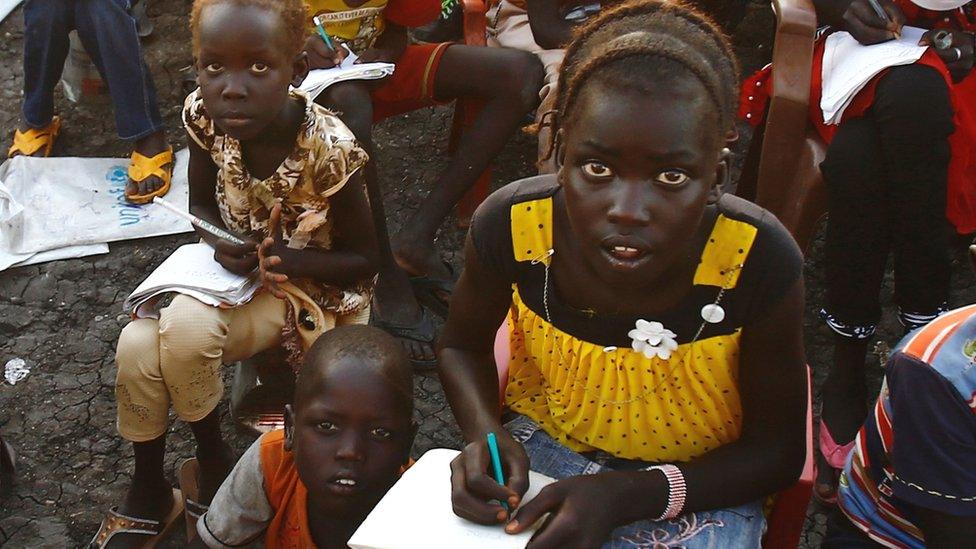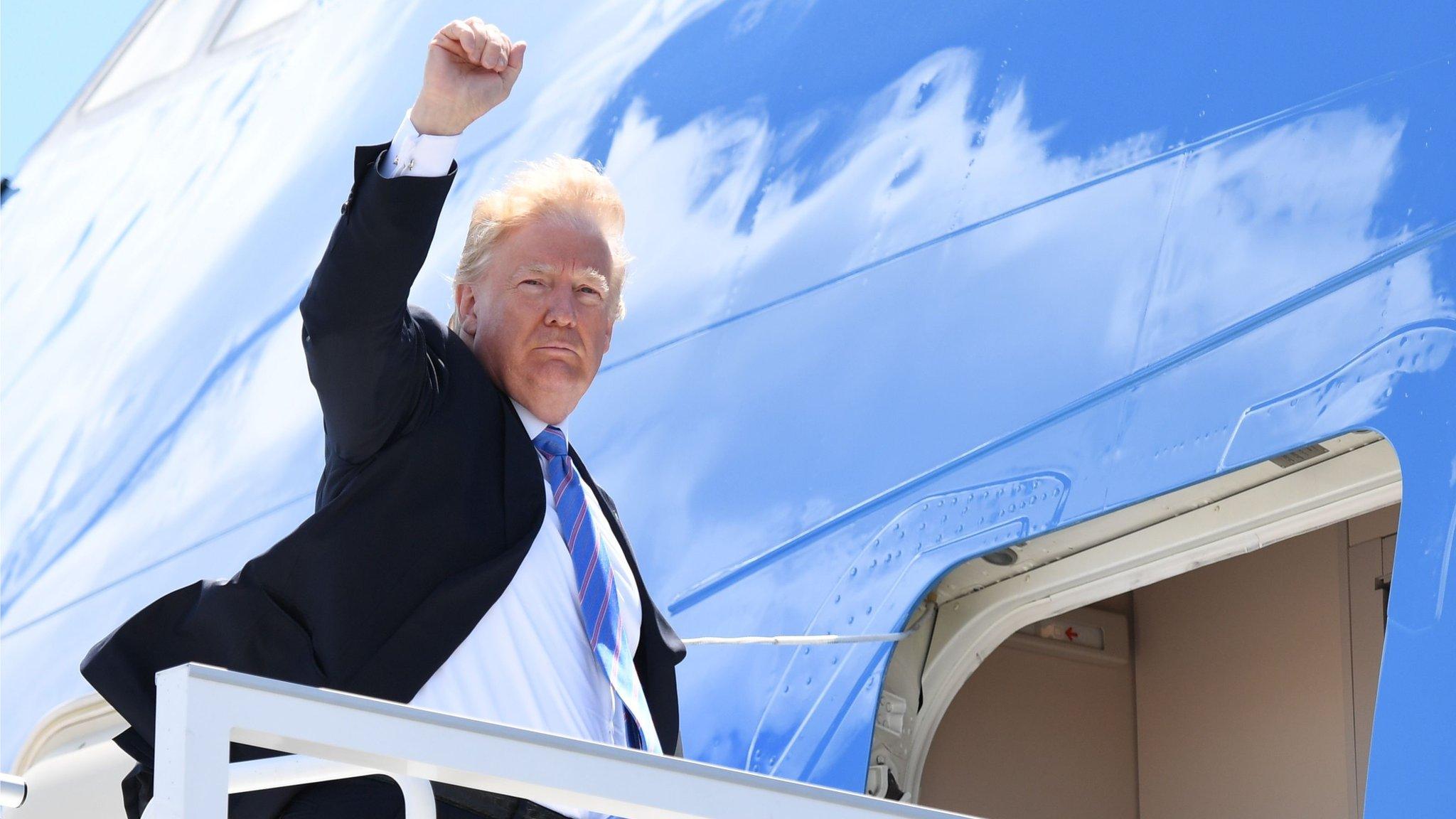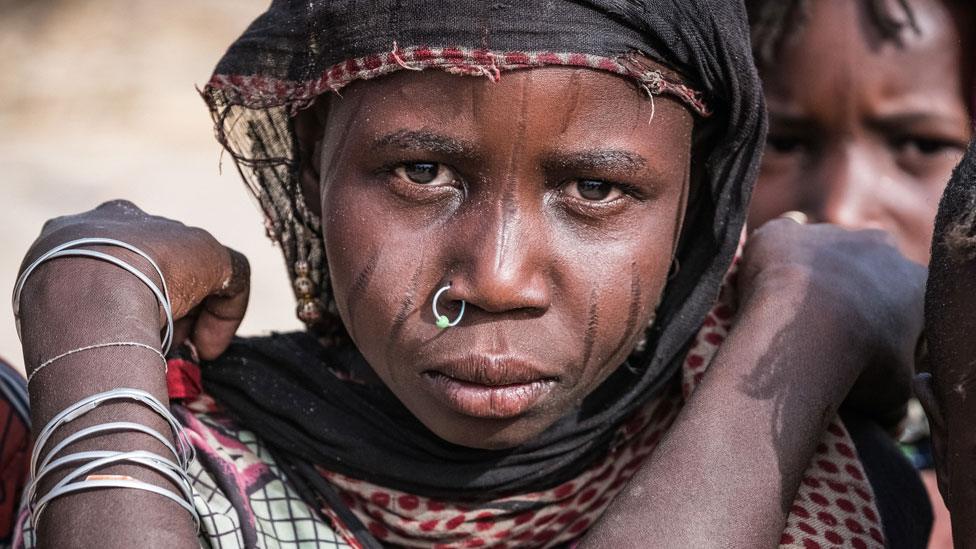G7 summit: $3bn pledge for girls' education
- Published

In conflict situations like South Sudan's, girls are likelier to miss out on education than boys
Canada says it plans to provide $2.9bn (£2.2bn; €2.5bn) with the help of its G7 partners to fund education for the world's poorest girls and women.
The money will help fund equal access to education and learning opportunities in countries across the globe, a government statement said.
The announcement on Saturday was delayed as contributors including Germany, Japan, the UK, the EU and the World Bank, continued to commit funds.
The G7 summit was held in Quebec.
It is an annual event bringing together Canada, the US, the UK, France, Italy, Japan and Germany, which represent more than 60% of global net worth between them.
The Canadian government said commitments to the education fund announced on Saturday represented "the single largest investment in education for women and girls in crisis and conflict situations".
The proposed investment, it said, could help educate more than eight million children and teenagers.
Nobel Peace Prize winner Malala Yousafzai, 20, welcomed the pledged funds.
Allow X content?
This article contains content provided by X. We ask for your permission before anything is loaded, as they may be using cookies and other technologies. You may want to read X’s cookie policy, external and privacy policy, external before accepting. To view this content choose ‘accept and continue’.

An estimated 75 million children, many of them girls, are out of school in 35 conflict-affected countries around the world, according to the UN children's agency Unicef.
In conflict situations, girls are 2.5 times more likely than boys to not be in school.
Some of the larger commitments were made by the UK, which said it would invest $250m, and the World Bank, which said it would contribute $2bn over five years.
Canada said it was committing almost $310m over three years.
According to the government statement, investments will support global action to:
Equip women and girls with the skills needed for the jobs of the future
Improve training for teachers to provide a better curriculum for women and girls
Improve the quality of available data on women's and girls' education
Promote greater coordination between humanitarian and development partners
Support innovative education methods, especially for vulnerable and hard-to-reach groups, including refugees and displaced people
Support developing countries in efforts to provide equal opportunities for girls to complete at least 12 years of quality education, from primary to secondary school
- Published9 June 2018

- Published9 July 2015
- Published11 October 2017
